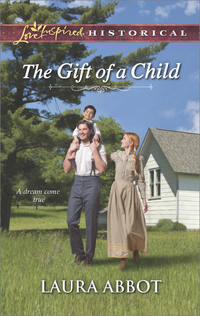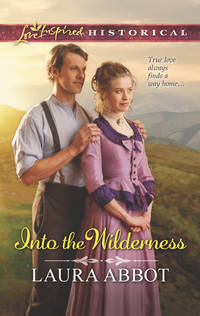
Полная версия
Stranger at the Door
“Hi.” She took a step forward. “This is my first day.”
“I know,” I said. “What’s your name?”
“Twink Montgomery.”
“Twink?”
She scowled, daring me to laugh. “Aurelia Mae Starr Montgomery. How would you like it if people called you Aurelia Mae?” She strung out each syllable in challenge.
“I wouldn’t, I guess.” In fact, I wasn’t crazy about my mother calling me Isabel Irene. From that first meeting with Twink, I longed for a nickname. “I’m Isabel Ashmore.”
“Isabel.” She rolled the name around on her tongue. “That’s not as bad as Aurelia. Close, though.”
We burst into a fit of giggles, the first of many.
When I told Mother about my new friend, she was horrified. “Twink? What kind of name is that? What are her people thinking? Why, why—” she sputtered “—it’s almost as bad as someone referring to you as Izzy!”
Izzy. Now there was a nickname! From the beginning, I liked it, but I knew Mother would swoon if she ever heard anybody call me that. Twink often used it when we were alone, but was careful not to slip in front of Mother.
Something weird happened the next year. Boys started paying attention to Twink and me. Not in a smooth-talking, Tab Hunter manner, but awkwardly, fumblingly.
Then, over the summer, to my horror, my breasts started budding. Mother and Grandmama simpered about how wonderful it was that I was “developing.” I hated that word. It conjured images of being sent, like a roll of film, to the Kodak camera shop for some mysterious metamorphosis.
Those times seem pretty tame now. As a naive thirteen-year-old I had never heard of condoms, wet dreams or oral sex. My goodness, finding out about menstruation had about done me in.
Oh, I started to write about Twink and me. She was still straight as a stick, but didn’t have any qualms when it came to talking to boys, whereas I became virtually tongue-tied.
This brings me to the Springbranch Cotillion—a tradition as established as sweetened ice tea. Held in the parish hall of the Episcopal church and sponsored by the Springbranch Women’s Club, the Cotillion was a series of ballroom dancing classes for eighth graders from the “best” families.
Every other Tuesday evening, dressed in our taffeta dresses and black ballet slippers, we girls were dropped off at the church where we suffered under the tutelage of Mrs. Collins Wentworth, self-proclaimed grande dame of local society.
Our very first night, Twink sailed toward the boys, dragging me reluctantly in her wake. Dressed in ill-fitting suits, shirts and even bow ties, they looked nothing like they did at school. When the boys averted their eyes and shuffled their feet, I realized they were no more enthusiastic than I was about the upcoming ordeal.
Mrs. Wentworth, clapping her hands over her head, sashayed to the center of the floor. “Please number off for partners.” My eleven was matched by Laidslaw Grosbeak’s. Yes, that was actually his name, and it suited him, because his thin, sallow face was overwhelmed by a long, aquiline nose. I towered over him. In memory, I can still smell the combination of his Juicy Fruit gum and Brylcreem hair tonic.
Twink shot a triumphant smile over Jimmy Comstock’s back. With the luck of the Irish, she had snagged the man of our dreams. After the briefest instruction, they were actually waltzing, while Laidslaw and I were still stumping in one place, eyes fixed on our uncooperative feet.
The Grand March mercifully brought an end to the evening. Two by two and then four by four, we circled the room and then were dismissed into the humid Louisiana night.
“How was the dance?” Grandmama asked later, her eyes sparkling in giddy anticipation. I stood in the living room doorway, mute with embarrassment.
Mother looked up from her darning. “I’m sure she enjoyed it, Mama.” She turned to me. “Didn’t you, Isabel?”
“It was all right.” I started toward my bedroom, eager to strip off the scratchy dress and remove the glittery rhinestone barrettes from my hair.
“Tell us more. Who did you dance with?” Hearing my grandmother’s plaintive tone, I knew a debriefing was unavoidable. Surrendering, I sat beside her and did my inventive best to paint a glowing picture of the debacle.
When I finished, Mother, a triumphant gleam in her eye, said, “See, Mama, I told you Isabel would do us proud.”
That night as I lay in my bed watching the moon rise over the treetops and feeling the restless breeze cool my body, I had the strongest premonition that something important was expected of me. Something involving boys.
Shortly before I closed my eyes, a shaft of moonlight settled on the billiken sitting on my curio shelf. For the fraction of a second, he seemed to wink at me.
EVEN THOUGH TWINK’S parents had bought an antebellum Southern mansion and drove the latest model cars, they were carpetbaggers in Springbranchian eyes. Mr. Montgomery had made his money in stocks, a specious enterprise in our part of the agricultural South. Mrs. Montgomery, called “Honey,” defied convention by hosting cocktail brunches on Sunday and driving to Shreveport to have her hair done.
I reveled in the sense of the forbidden whenever I was in their home, where full liquor decanters and a silver cigarette box sat on a table right in the living room. If my mother had known, she might have forbidden me to be friends with Twink.
Best of all was the gazebo at the back of the Montgomerys’ deep yard. Shaded from view by hundred-year-old oaks, it was our secret hideaway. One hot July afternoon following our eighth grade year, we took lemonades and a Monopoly set out there. But before we set up the board, Twink looked around, making sure she wasn’t being observed, and then pulled a soft-covered book from beneath her sleeveless camp shirt. “Want to see what I found?” In her expression excitement mingled with disgust.
Prickles traveled down my spine. “What?” I pulled my legs under me and waited.
“This was in my mother’s dresser drawer, way in the back underneath her nightgowns.” As if it were a hot potato, she handed me the slim volume.
I had intended to ask why she’d been snooping in her mother’s bedroom, but I couldn’t. Not after reading the shocking title. Sexual Secrets of Happy Marriages.
“Open it.” Twink’s voice sounded tinny.
I gripped the book between my fingers, sensing I was on the brink of a fateful decision.
“Go ahead, Izzy.”
Twink’s use of the special nickname committed me in a way nothing else could have. “Okay.” I turned to the middle of the book, then blinked, certain I could not be seeing what was there on the page in black and white. “Twink?” Light-headed, I held out the book for her inspection. “Are they doing what I think they are?”
“Yes.”
Incredulous, I studied the photograph of the naked couple. I knew vaguely about sperm and eggs and ovulation, but no one, not my mother and not the health teacher, had ever explained in detail about the sex act.
“See—” Twink pointed to the picture “—the man puts his thing in her. Listen here.” Turning the page, she read me a graphic account of the mechanics, then flipped to photos of other contorted positions.
“Twink, this is revolting.”
“It’s icky to think about our parents doing this, isn’t it?” she said in a hushed voice.
“My parents!” It’s a wonder the neighbors didn’t hear my shriek of outrage, but the mental image of Irene and Robert Ashmore coupling was utterly incomprehensible.
Twink and I never opened the Monopoly set. Instead we spent the afternoon devouring every lurid detail, alternately horrified and titillated.
Only later, walking home, did the full import hit me. Husbands and wives did this. That’s how babies were made. I would someday have to do that thing myself. I remember leaning against the trunk of a tree, on the verge of being sick, trying to catch my breath.
Then another thought came. Grandmama and Mother kept asking me whether I had any beaux. But if they knew what men and women did…
In bed that night, I thought about Laidslaw Grosbeak and Jimmy Comstock. Even Tab Hunter. Then I made a solemn promise to myself. I would die an old maid before I would ever do that.
One afternoon with “the book” had shattered the idealized image of Southern womanhood for me. However, all that knowledge couldn’t prepare me for what was to come, and before too long, I discovered life always has the capacity to blindside us.
ARMED WITH THE back-to-school issue of Seventeen, Twink and I assembled our wardrobe for the most momentous step in our lives—high school. The three-story brick building, two blocks off the town square, had not yet been remodeled. Tall, heavy-sash windows opened to whatever breeze might come, desks rested on polished wooden floors and freshly cleaned blackboards bordered the rooms. But to Twink and me it was Valhalla—the place where the gods and goddesses of our adolescence resided.
On that first day, although I had mastered my locker combination, I was fearful about getting lost. What if I was late for a class? To add to my insecurities, I caught sight of the head cheerleader, the varsity quarterback and the senior class president, whose green eyes and dimples made me weak in the knees. I had never felt so out of place or awkward.
But that changed when I walked into algebra and saw Taylor Jennings. He had the dark good looks of a Creole grandee and a sultry voice that transported me to moonlit bayous. Sitting at my desk, feeling his gaze on me, the hairs on the nape of my neck stirred. In the pit of my stomach were funny, unfamiliar sensations. Unbidden, the photos in “the book” rose in my memory, and I felt myself blush.
Walking home with Twink, I mentioned Taylor.
“He’s handsome, all right,” she agreed. “If you like freshmen.” She smirked, then did a jig step. “I’m setting my sights on Jay Owensby.”
I stopped dead in my tracks. “He’s a junior.”
She giggled. “So? I’ve always adored older men.”
“Aurelia Mae Starr Montgomery, are you keeping secrets?”
“I was going to tell you. Dad hired Jay two weeks ago to mow our lawn. You should see him without a shirt.” She made a play of fanning herself. “Anyway, we’ve been talking, and last night he came over to pick up his check. One thing led to another and…”
I wanted to shake her. “What do you mean?”
“He asked me to go for a walk and we ended up in the park.” Her eyes twinkled mischievously. “Oh, Izzy, it was di-vine!”
“What was?”
“The kiss.”
She said it so matter-of-factly, I wasn’t sure I’d heard correctly. “The kiss?”
“Believe me, it was nothing like those stupid games of post office.” She shivered with delight. “I can’t wait for the next one.”
I wanted details, but at the same time I felt like a novice in the presence of the initiated. “Are you two, like, dating?”
“He’s taking me to the football game this weekend. He has a car. Who knows? We may end up at the lake for a smooch.”
“A smooch?”
She put an arm around my shoulder and leaned closer. “And maybe more.”
“More?” In my bewilderment, I couldn’t stop parroting her.
“Oh, Isabel, it’s all starting—just like in the movies. I’m so glad we’re growing up.”
By the time we reached the corner where we parted ways, we had changed the subject, yet all I could think of was the change in Twink.
DESPITE TYPICAL TEENAGE trials, high school was an idyllic interlude. I enjoyed my classes and, committed as I was to pleasing my parents, Daddy in particular, I excelled. That achievement was not without its price, however. I soon discovered that boys were not interested in the quality of my mind.
I dated some, but usually other serious students, whose claim to fame lay not on the football field but in labs and at debate tournaments. Like most teens, I fantasized about being the homecoming queen, escorted to the prom by a handsome, champion athlete. Instead, my date was the aforementioned Laidslaw Grosbeak, who, at least, had grown ten inches and adopted his middle name, Barton. And yes, Twink was the queen.
As far as what passed for romance was concerned, I lived vicariously through Twink, who knew how to flirt, lead a boy just to the point of no return, cast him aside and mysteriously remain on good terms with him. She also gave me my first view of the world beyond Springbranch. At least twice a year her family vacationed in exotic spots like New York City, London and Honolulu, scenes I could only imagine from magazines or television. Much as I wanted to see such places for myself, I was intimidated by the unfamiliar. I couldn’t envision a future that didn’t include Springbranch, a provincial outlook that hardly prepared me for what happened later.
One snapshot from those years summarizes the two of us. We stand in caps and gowns, arms entwined. Mortarboard at a rakish angle, Twink grins triumphantly at the camera, while I face straight ahead, my mortarboard aligned in a scholarly manner, clutching my diploma protectively. “Graduation is only the beginning,” she appears to announce, whereas my demeanor screams a need to remain eternally at Springbranch High School.
How often I have appreciated Twink’s adventurous spirit. Even considering her two divorces and years of caring for her ailing mother, she has rarely lost her optimism. I, on the other hand, am full of reservations and second thoughts, which makes this trip down memory lane both necessary and bittersweet.
CHAPTER TWO
Springbranch, Louisiana
August, 1957
TWINK AND I WERE TOGETHER every day of what was to be our last Springbranch summer. In mid-August Twink’s parents abruptly put their house on the market under suspicious circumstances. Twink acted unfazed. “After all,” she said with a toss of her head, “I’ll be back East at college. What do I care where they live?”
But she did care. A great deal. She’d told me once that Springbranch was the only place her family had lived for more than two years. The town represented roots, and poignantly, so did my family and I.
Not that Mother ever fully accepted Twink’s eccentricities, but Grandmama relished another rapt listener for her stories, and Daddy enjoyed it when we girls sprawled on the Oriental rug in his study and read while he worked.
Although Twink may have appeared undaunted by change, I couldn’t even pretend to be unaffected. We were attending different colleges—she, a prestigious women’s college and I, the state university on an academic scholarship. Knowing we’d be apart even during vacations made this transition all the more unsettling. The last night before Twink left for school, Mother allowed me to sleep over at the Montgomerys’ house.
Twink’s belongings had been boxed up, ready for the family’s move to Baltimore, and open suitcases awaited last-minute additions. Her stripped room was symbolic of change. Gentle breezes stirred the ruffled curtains at the window, and our voices echoed off the bare walls. Twink seemed determined to get through the night without sadness, but I barely held myself together. Determinedly cheerful, she recalled our meeting, high school escapades and secret crushes. It was after two when we finally turned out the light. I lay in the twin bed, staring at the leafy branches of the huge oak outside the window, choking back my pain and loss and wondering when I would ever see my friend again.
Just as I was about to drift off, Twink spoke. “Are you awake?”
“Yes.”
“You’ll be all right, you know.”
It was as if she’d read my mind, knew how apprehensive I was about going to Louisiana State University and understood how much I was going to miss her friendship. A lone tear trickled down my cheek. “It won’t be the same without you.”
“I know.” I detected a hitch in her voice. “Here’s the thing, Izzy. Things can’t always stay the same, even if we’d like them to. Look at it this way. We’re ready for new adventures in that wonderful world out there.”
That alien world terrified me. Yet in that moment I found myself wanting to comfort Twink, whose voice betrayed her bravado. Oddly, that made me feel better. I wasn’t the only one uncertain about the future.
“A whole new world…but, Twink, I can’t do this unless I know we’ll always be friends, no matter what.”
“Till we die,” she whispered.
I echoed her words. “Till we die.”
We were such innocents, little dreaming what changes and upheavals life would bring. But we understood the solemnity of our pledge, and we honor it still.
Baton Rouge
1957-1958
COLLEGE. THE HALCYON years between adolescence and adulthood. Or so they say. First semester of my freshman year, from the frenzy of sorority rush to the rigor of final exams, I felt overwhelmed. So many people. Unfamiliar surroundings. Sharing a room for the first time. And the crushing weight of my mother’s expectations.
Before I left for the university, I’d been unaware that a coed’s true purpose in attending college was snagging a husband. But in Mother’s weekly phone calls, she made that abundantly clear. “Have you met anyone yet?” Anyone, of course, was code for Mr. Right. I was meeting some college men at fraternity mixers, but they weren’t lining up to escort me to parties.
Gradually, I settled into a niche. I enjoyed sorority life, and once or twice a month one of my sisters arranged a blind date for me, but none of them progressed beyond friendship. Women today have choices, but back then, college, for most, was a marital hunting ground. We gave lip service to majoring in education, nursing or home economics, but few of us expected to be employed beyond our first pregnancy.
Meanwhile, Twink regaled me in letters and phone calls with accounts of wild house parties, weekends in New York City and the “divine” men she was meeting. I wasn’t exactly jealous because I knew such glamorous experiences weren’t for me, and yet….
My sophomore year was easier. Living in the sorority house gave me a comforting sense of home, I knew my place and began to understand the usefulness of my English lit studies. Yet I was no closer to satisfying my mother’s ambitions. The fact of the matter was that I was in no hurry. Marriage was a distant goal. College men either terrified me with their drinking exploits and masculine swagger or bored me with their immaturity.
Throughout my first two years at LSU, the billiken sat on the dresser in my cubbyhole of a room, mocking me with its silence.
Baton Rouge
1959-60
HONESTLY, I’D EXPECTED my college experience to be like the glossy color photos in the school catalog, where I’d be happily waving a purple and gold pennant in the student cheering section or strolling hand-in-hand with a handsome fellow sporting a letter jacket.
Amazingly, in my junior year that’s exactly what happened. Drew Mayfield came into my life. If Mother had ordered him from a husband catalog, he couldn’t have more neatly fit her mold. His résumé was impeccable: honor student, captain of the golf team, treasurer of the top fraternity, a pre-law major. From Mother’s viewpoint his most important credential lay in the fact his father was a federal judge.
Drew was handsome and innately kind. All Southern gentlemen model courtesy, but many practice it in chauvinistic, self-aggrandizing ways. Not Drew. He treated me like a lady, even a cherished one. Therein lay the problem. He was perfect…on paper. We walked hand-in-hand down azalea-lined sidewalks, he bought me a chrysanthemum corsage for homecoming and nominated me for sweetheart of his fraternity. We became a couple. At the end of that year, beneath a full Southern moon, he gave me his fraternity pin.
When I went home for the summer, Mother was ecstatic. For once, I was convinced I’d pleased her. She pored over photographs of Drew and me, and couldn’t hear enough about our courtship. Yet the more I repeated the story, the more removed I felt, as if I were observing a film entitled the The Good Daughter.
Drew drove up from New Orleans twice that summer and succeeded in charming my mother and grandmother. Daddy was his usual chivalrous but inscrutable self. Drew seemed maddeningly at home in Springbranch. I say maddeningly, because I caught myself trying to discover a flaw in him. Surely he would be out of place in our small town. But he wasn’t. Even Eunice Culpepper, our nosy neighbor, fell under his spell.
I liked him. I really did. And I’m reasonably certain he believed himself in love with me. By the beginning of our senior year, we had a tacit understanding that we would marry following graduation. Mother was already considering the guest list and the seasonal flowers that would adorn the church. I was swept away in a tidal wave of others’ expectations.
It took Twink to ask the question. “Do you love him so madly your body quakes with excitement?”
I clenched the phone and swallowed the lump in my throat.
“Izzy?” The compassion in my friend’s voice undid me.
“I…uh, I…”
“The answer’s no, isn’t it?”
How desperately I wanted to tell Twink that Drew was the most exciting man in the world, that he did, indeed, make me limp with desire. That all the pictures in the book we had read in that gazebo years ago had taken on glorious new meaning.
You might logically assume I broke off with Drew. But I didn’t. He was safe. Predictable. I liked him. Best of all, he pleased my mother. I could learn to love him, I told myself. We could have a nice life together.
Oh, what a weak word “nice” is.
Springbranch
1960
IN EARLY NOVEMBER OF that year, I was called home from school. Grandmama, who had grown increasingly frail, was in the hospital. Seeing her pale, shrunken body on the bed, I faced mortality for the first time. When I picked up her hand, the paperlike, wrinkled skin felt warm, but her breath came in labored gasps. Her white hair, usually perfectly coiffed, hung lankly. Nurses came and went, but I felt compelled to stay. From the hall I heard whispered consultations. Congestive heart failure. Not long now. Words that pierced my soul.
Daddy sat in the waiting room, a volume of Wordsworth his only company. Mother bustled. Straightening pillows. Filling the water carafe. Adjusting the blinds.
But I sat, willing each new inhalation and realizing how much I loved Grandmama and depended on her. I had never had to work to please her. Even if I’d told her the truth years ago about the cotillion disaster, she would have hugged me and said, “There, there, Bel.”
Later that night after Mother left the room, I found myself humming “I’ll Fly Away” and blinking back tears. Then I felt Grandmama’s thumb caressing the back of my hand. When I looked up, her eyes were open, her mouth curved in the trace of a smile. “Bel,” she murmured.
“I’m here.”
With surprising strength, she drew me closer. I leaned over the bed. “That boy,” she whispered.
“Drew?”
She nodded. “Passion.” The word had the force of an imperative.
I had no answer.
Then came the last words I ever heard my grandmother utter. “Things as they ought to be, ma petite.”
Then she closed her eyes, gave a long sigh and left me.
Baton Rouge
1961
EVEN THOUGH I KNEW in my heart I was betraying both myself and Grandmama, I agreed to marry Drew. Of all the men I had met at college, he was by far the best match. We had much in common. Our families approved. We discussed names for the two children we intended to have. Besides, marriage was the “done” thing. With few exceptions, my sorority sisters either were already married or in the throes of planning their weddings.
Drew’s kisses didn’t send me to the moon, but they were pleasant enough. Heavy petting, while arousing, seemed a bit clinical, but so had the photographs in the book. Back then, though, I didn’t know anything different.
St. John’s was reserved for September 8, the women’s auxiliary scheduled to cater the reception and the Springbranch Country Club booked for the rehearsal dinner. Twink was to be my maid of honor. Mother was in her element. Things were proceeding precisely according to her plan. Daddy spent even more time in his study.






